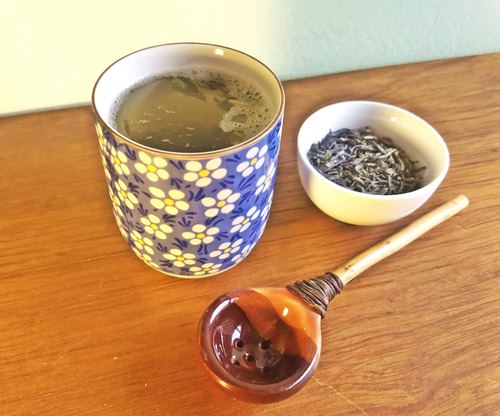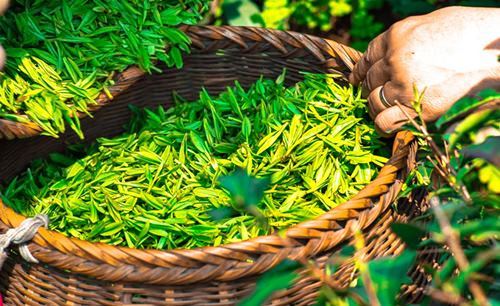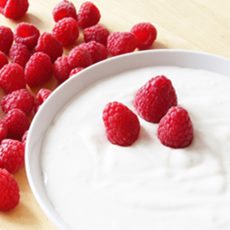Health Benefits of Green Tea
Green Tea and your helath
Fact Checked
×All the content published in our website is fact checked to validate its accuracy.
Visit our guidelines web page to learn more about our strict processes regarding how we review our content's sources: reliable and reputable journals, media websites, universities, colleges, organizations, and professionals.
Our articles are based on scientific evidence, and the references are included in its footnotes, which are clickable links to sound scientific papers.
First published: 22.Jan.2019
Overview: Green Tea, benefits & risks
Green tea is a natural source of powerful antioxidants called catechins, and drinking green tea has significant health benefits, such as cardiovascular disease and cancer prevention, improved bone density, lower cholesterol, antimicrobial, antiviral, and antifungal properties.
However, excessive consumption of green tea extracts or taking it as a supplement in high concentrations can impair iron absorption and cause severe liver damage -infusions are generally considered safe.
This article will look into the extraordinary health benefits and the potential adverse effects of green tea; and the evidence from scientific studies.
Consumption of green tea has preventative effects on obesity, hypertension, insulin resistance, type II diabetes, atherosclerosis, coronary heart disease, and Metabolic Syndrome (MetS). The catechins in green tea has been found to be beneficial in obesity induced by a high-fat diet. Chen et al., 2020 (1)
Some of the health protective benefits of green tea:
- Preventing cancer.
- Preventing coronary & heart disease.
- Antimicrobial, antiviral,& antifungal effects.
- Anti-inflammatory effects.
- Oral health benefits.
- It lowers blood pressure.
- Reduced "bad" LDL cholesterol levels.
- Weight loss.
- Improved bone density.
- Protection against neurodegenerative diseases.
- Green tea improves depressive symptoms.
- Chronic liver diseases.
References and Further Reading
(1) Chen J, Zhang Z, Yu P, Gan W, Ren K, Zhang F, Chen F, Wang M, Bao J, Wang T. (2020). Beneficial effects of green tea on age related diseases. Front Biosci (Schol Ed). 2020 Jan 1;12:70-91. PMID: 31585866
(2) Kavita Singhal, Neerja Raj, Khushboo Gupta, and Saurabh Singh, (2017). Probable benefits of green tea with genetic implications. J Oral Maxillofac Pathol. 2017 Jan-Apr; 21(1): 107-114. doi: 10.4103/0973-029X.203758
(3) M.G. Sajilata, Poonam R. Bajaj, and R.S. Singhal, (2008). Tea Polyphenols as Nutraceuticals. Comprehensive Reviews in Food Science and food safety. Institute of Food Technologists, Vol. 7:3 2008 229-254. https://doi.org/10.1111/j.1541-4337.2008.00043.x
(4) Sabu M Chacko, Priya T Thambi, Ramadasan Kuttan, Ikuo Nishigaki, (2010). Beneficial effects of green tea: A literature review. Chin Med. 2010; 5: 13. doi: 10.1186/1749-8546-5-13
(5) Wanda C. Reygaert, (2018). Green Tea Catechins: Their Use in Treating and Preventing Infectious Diseases. Biomed Res Int. 2018; 2018: 9105261. doi: 10.1155/2018/9105261
(6) Sena Saklar, Erdal Ertas, Ibrahim S. Ozdemir, and Bulent Karadeniz, (2015). Effects of different brewing conditions on catechin content and sensory acceptance in Turkish green tea infusions. J Food Sci Technol. 2015 Oct; 52(10): 6639-6646. doi: 10.1007/s13197-015-1746-y
(7) Hirota Fujiki, Tatsuro Watanabe, Eisaburo Sueoka, Anchalee Rawangkan, Masami Suganuma, (2018). Cancer Prevention with Green Tea and Its Principal Constituent, EGCG: from Early Investigations to Current Focus on Human Cancer Stem Cells. Mol Cells. 2018 Feb 28; 41(2): 73-82. doi: 10.14348/molcells.2018.2227
(8) Kavita Singhal, Neerja Raj, Khushboo Gupta, and Saurabh Singh, (2017). Probable benefits of green tea with genetic implications. J Oral Maxillofac Pathol. 2017 Jan-Apr; 21(1): 107-114. doi: 10.4103/0973-029X.203758
(9) Menegazzi, M., Campagnari, R., Bertoldi, M., Crupi, R., Di Paola, R., & Cuzzocrea, S. (2020). Protective Effect of Epigallocatechin-3-Gallate (EGCG) in Diseases with Uncontrolled Immune Activation: Could Such a Scenario Be Helpful to Counteract COVID-19? International journal of molecular sciences, 21(14), 5171. https://doi.org/10.3390/ijms21145171
(10) Momose Y, Maeda-Yamamoto M, Nabetani H, (2016). Systematic review of green tea epigallocatechin gallate in reducing low-density lipoprotein cholesterol levels of humans. Int J Food Sci Nutr. 2016 Sep;67(6):606-13. doi: 10.1080/09637486.2016.1196655. Epub 2016 Jun 20
(11) Hursel R, Viechtbauer W, Westerterp-Plantenga MS. (2009). The effects of green tea on weight loss and weight maintenance: a meta-analysis. Int J Obes (Lond). 2009 Sep;33(9):956-61. doi: 10.1038/ijo.2009.135. Epub 2009 Jul 14
(12) Kaijun Niu et al., (2009). Green tea consumption is associated with depressive symptoms in the elderly. The American Journal of Clinical Nutrition, Vol 90:6, 1 December 2009, 1615-1622, https://doi.org/10.3945/ajcn.2009.28216
(13) European Food Safety Authority, (2018). EFSA assesses safety of green tea catechins. Published 18 April 2018
(14) Hu J, Webster D, Cao J, Shao A, (2018). The safety of green tea and green tea extract consumption in adults - Results of a systematic review. Regul Toxicol Pharmacol. 2018 Jun;95:412-433. doi: 10.1016/j.yrtph.2018.03.019. Epub 2018 Mar 24
(15) Robert A. Yokela and Rebecca L. Florence, (2008). Aluminum bioavailability from tea infusion. Food Chem Toxicol. 2008 Dec; 46(12): 3659-3663. 2008 Sep 21. doi: 10.1016/j.fct.2008.09.041
(16) Jiang, Z., Li, R., and Li, Y., (2024). First evidence on the causal association between green tea and gastrointestinal health: a two sample mendelian randomization study. CyTA Journal of Food, 22(1). https://doi.org/10.1080/19476337.2024.2308628
(17) Xiang, Yi et al., (2024). Tea consumption and attenuation of biological aging: a longitudinal analysis from two cohort studies. The Lancet Regional Health – Western Pacific, Volume 42, 100955 Jan 2024
About this Article
Health Benefits of Green Tea, A. Whittall
©2024 Fit-and-Well.com. First Published: 22.Jan.2019. Updated 13.Nov.2024. Update scheduled for 18.Nov.2027. https://www.fit-and-well.com/diet-food/green-tea-health-benefits.html
Tags: tea, cancer, heart, cholesterol, hypertension, weight loss, liver, aging, antimicrobial, bone health




